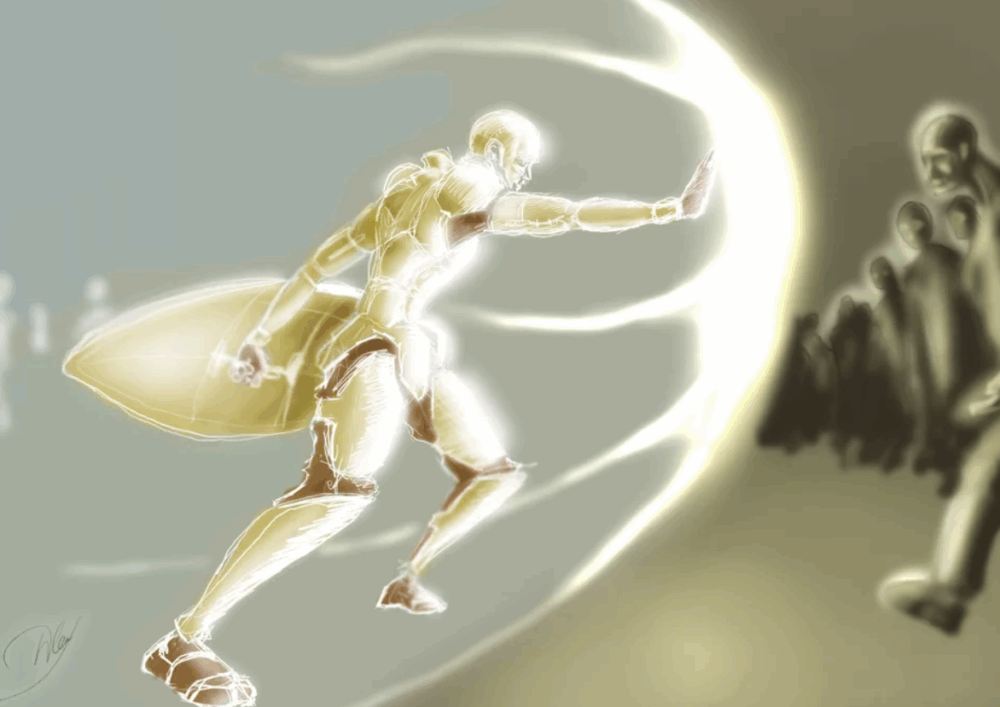Politeness as a Shield Against Rudeness
It’s often believed that rude people tend to target those who are “too polite and overly cultured.” However, I think that rude individuals are unconsciously drawn to such people because these very qualities allow them to respond appropriately to rudeness and bad manners from others.
After all, politeness can put a rude person in their place just as effectively as a straitjacket. For example, cultured people always thank others for everything:
- “Thank you for stepping on only one of my feet.”
- “Thank you for showing your true colors.”
- “Thank you for sharing your thoughts. I appreciate their depth.”
Well-mannered people always apologize:
- “Sorry for interrupting your interruption, but I haven’t finished my thought yet.”
- “Sorry for scratching (sneezing, coughing) in your presence, I just have an allergy to rudeness.”
- “Sorry for disagreeing with you, but I know my rights very well.”
Polite people know how to listen without interrupting, and then might ask:
- “Are you finished? I hope you feel better now.”
Cultured people understand that rude behavior has its reasons, so after listening to an ill-mannered person, they politely inquire:
- “Are you being rude? Why?”
- “Are you trying to offend me? What’s the point?”
Intelligent people think logically, so they believe that if someone is being rude, then that person is rude, and they generously share this simple conclusion with the uncultured individual:
- “You are rude.”
And that’s the right thing to do. Let the rude person know who they are, so they don’t remain dangerously mistaken about themselves.
However, sometimes well-mannered people are left speechless from shock when faced with rudeness directed at them. Later, they get upset. Sometimes, they even cry. Some withdraw from this imperfect world, isolating themselves, avoiding new contacts, and preferring a “hermit’s” life, which, in reality, doesn’t suit them at all.
Such people need to understand that their politeness and good manners are not a weakness, but a powerful shield against rudeness. To use this protection effectively and in a timely manner, practice is necessary.
It’s best to start with the “Happy End” exercise.
Exercise 1: “Happy End”
- Recall a situation where someone was rude to you and it really upset you.
- Rate your emotional state in that situation on a scale from -10 to +10.
- Think about how you could have responded to improve your state (use the examples from earlier in the article).
- Imagine this response in your mind and rate how your state changes (again, from -10 to +10). If you end up “in the positive,” that’s your happy end.
- For greater effect, come up with several possible positive outcomes for the unpleasant situation, rate each, and choose the best one.
- Return to this exercise periodically to gradually reframe all your negative experiences with rudeness and develop a positive way of handling them.
Exercise 2: “The Collection”
- Start collecting and writing down all the worthy responses to rudeness you’ve seen, come up with yourself, read in books, or seen in movies.
- Try them on for size, and note which ones suit you best.
- As your “Collection” grows, move on to the next exercise.
Exercise 3: “Ranking”
“If there’s a sparrow nearby, we prepare a cannon…” goes a famous children’s song about those who use their strength inappropriately for the situation—either using a cannon on a sparrow or a useless remedy for the dead.
But we’re not like that. We definitely won’t be, if we rank all the responses from our “Collection” from the most delicate to the most direct and tough.
For example, I ranked four statements as follows:
- “Are you being rude? Why?” In my opinion, this is the most peaceful response to rudeness.
- “Thank you for stepping on only one of my feet.” If you say this in the sad voice of Eeyore the donkey, it can even be funny and defuse the situation.
- “You are rude.” Very direct, straight to the point.
- “Please give me your feedback and suggestions book.” I consider this one of the most extreme options.
Exercise 4: “Thank You, Rude Person!”
Strangely enough, rude people can be useful: they painfully, but vividly and memorably, point out our sore spots that have long needed some therapy.
Recall your past encounters with rude people that still trigger strong emotions. Analyze what these situations have in common (low self-esteem, heightened guilt, constant fear of offending others, or a desire to avoid conflict at any cost…) and how you would like to change this.
Remember, your politeness and good manners are not a weakness, but a powerful shield. With practice, you can turn every encounter with rudeness into an opportunity for growth and self-confidence.



